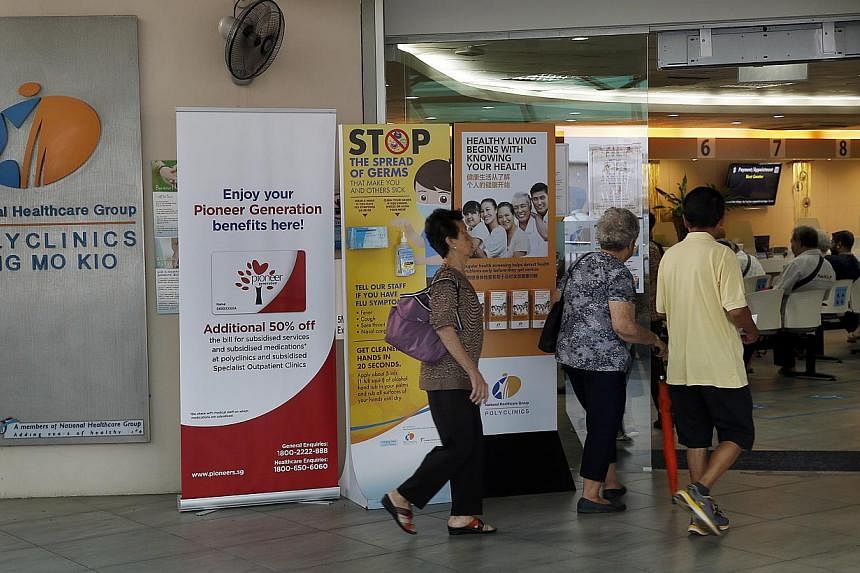SINGAPORE - A new Flexi-Medisave scheme will be introduced on April 1, 2015, to give the elderly more flexibility in using their Medisave and to further reduce their out-of-pocket costs for outpatient medical care.
Under the scheme, Singaporeans aged 65 and above will be able to use up to $200 of Medisave a year for outpatient treatments at public sector specialist outpatient clinics, polyclinics and general practitioner clinics under the Community Health Assist Scheme (Chas).
Here is what the scheme can be used for:
- Outpatient medical treatment received at designated healthcare institutions.
- Screening tests under the national Integrated Screening Programme. This includes screenings for selected chronic diseases and cancers.
- To supplement other outpatient uses of Medisave. This includes the new $300 limit for outpatient scans that was implemented on Jan 1, 2015, and the existing $400 limit for things like outpatient treatment for chronic diseases.
An example of what Flexi-Medisave covers:
- An elderly man visits a public hospital's orthopaedic clinic following a leg fracture surgery and is required to go for follow-up consultations and physiotherapy sessions. He can use up to $200 from his Medisave to reduce his cash payment for such costs after subsidy.
- If his wife visits the polyclinic every few months for treatment of her thyroid disorder, she can use Flexi-Medisave to cover her medical bills. If she does not have enough Medisave, he is able to use up to $200 from his own account to pay for her treatment. This is on top of the $200 he has already used for his own treatment.
The scheme does not cover things such as:
- Treatment for non-medical purposes, such as slimming and hair loss
- Administrative fees not related to treatment, including charges for medical reports
- Retail items, such as mobility aids and skin products
- Traditional and complementary medicine
- Dental treatments
- All accident and emergency expenses incurred at emergency departments
- Ambulance fees


